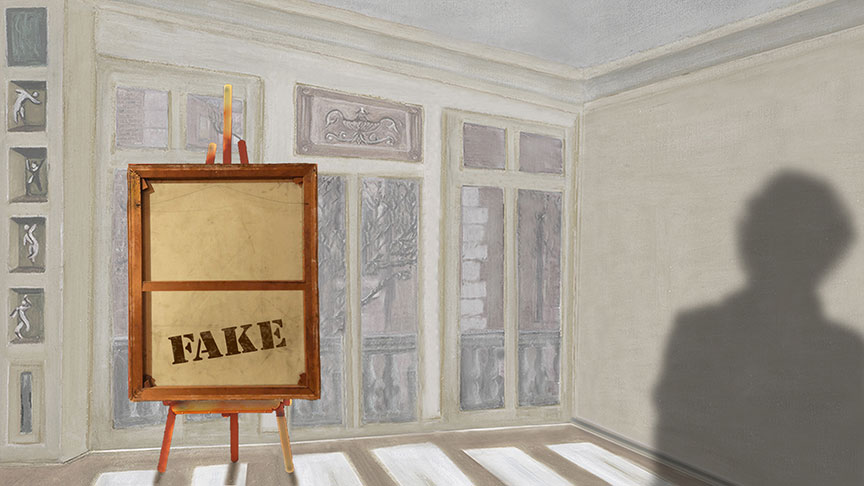On May 1, the curtain will rise on the latest edition of the Greenwich International Film Festival. Since its inaugural event in 2015, the festival has become one of the region”™s most popular entertainment events, with a wealth of Hollywood talent bringing their latest cinematic endeavors to local audiences.
This year, however, real life intruded on reel life in a manner unseen outside of doom-and-gloom science-fiction epics, and the fate of this year”™s April 29 to May 3 event was in peril.
“We were holding out hope in early March that things might not get that bad,” recalled Ginger Stickel, executive director and chief operating officer for the festival. “Obviously, not long after that, there was a public state of emergency declared. On March 12, we had an emergency board meeting for the Greenwich International Film Festival, and the board voted to move the physical festival to a virtual event and keep the same base for our film lineup.”

To accommodate the switch from red carpet to modem, the festival”™s run-time was slightly shortened ”” the event keeps the May 1-3 screening schedule but loses the April 29 premiere event and April 30 gala. The Hollywood connection for film previews was also sacrificed for this year”™s virtual showcase.
“We knew when we made the switch to a virtual festival that we would lose the studio films, because they have certain requirements and a number of bureaucratic layers, and it was going to be difficult to confirm those studio films in a short timeframe,” Stickel said. “There were some films that we would have loved to showcase in our lineup. But we also had a number of films that absolutely could work.”
After making the decision to go virtual, Stickel and her staff researched the necessary tools needed to create this new festival.
“It will be on our WordPress website,” she said. “We have upgraded our website capability and we”™ve also added new security package and measures to protect the filmmakers from piracy and other issues.”
Viewing this virtual event requires a $175 special pass that enables the screening of all 29 films in the festival; a discounted $100 pass is available for qualified students and seniors. The screening pass also includes access to interviews with the filmmakers and other creative artists whose works are being presented and a chance to vote in the festival”™s JP Morgan Chase Audience Award Winner.
“It gives you a unique user login, so anyone in your home can watch the films with you either on your device or mirrored to your television,” Stickel said. “Because of the tight timeline of the festival, we had to make the virtual real platform for 2020 as simple and user friendly as possible. And to do that, we could not put the films at specific times and allow ticketing for the individual films.”
Among the prominent narrative films in this year”™s Greenwich International Film Festival are Arthur Egeli”™s “The Black Emperor of Broadway,” starring Shaun Parkes as the barrier-breaking 1920s African-American actor Charles S. Gilpin and Julio Vincent Gambuto”™s “Team Marco” about the unlikely bond between a bocce-playing grandfather and his electronics-obsessed grandson; and the world premiere of Takeshi Kushida”™s off-beat drama “Woman of the Photographs” about the unlikely romance between a couple with self-esteem problems.

Nonfiction features include Andrew Goldberg”™s “Viral: Antisemitism in Four Mutations,” about the rising level of violence aimed at Jewish communities in the U.S. and Europe; Thomas Keith”™s “Bullied” about efforts to mitigate the alarming levels of bullying within schools; and Daria Price”™s “Driven to Abstraction” about the $80 million forgery scandal that brought down the iconic New York City art gallery Knoedler.
Stickel added this year”™s lineup carries on the festival”™s mission to “harness the power of film to serve the greater good by supporting causes that relate to basic human rights, education, the environment and health care. And we”™re also supporting Greenwich Hospital with some of the festival proceeds, as well as the tribute video.”
While Stickel and her team had less than two months to turn their live event to a virtual happening, this new incarnation has already gained attention across the film festival circuit. Stickel reported that “at least 11 film festivals have reached out to get tips, suggestions and contacts from us for their own festivals, because they”™re trying to figure out how to create a virtual festival. So, we”™ve been able to act a little bit like a roadmap for some of the other regional festivals.”
The festival”™s gala is being rescheduled for the autumn, but Stickel is not committing to a specific date.
“We have a few days on hold with our venues,” she said. “We are waiting to see what Connecticut”™s rollout plan is, which hasn”™t been announced yet. I think maybe first week of May or so we”™ll know more. We”™re a little hesitant to publicize blind, so we want to get a little more clarity on Connecticut”™s plans.”





















